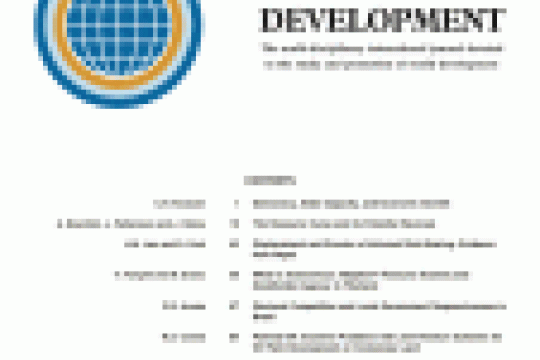The adoption of certain farm management practices, such as tree planting and soil and water conservation, can reduce exposure to weather shocks. However, in many countries the adoption of such risk mitigating measures is far from complete.
The authors explore how risk-sharing networks in the form of kinship, characterized by the moral imperative of within-group sharing, affects the adoption of risk mitigating activities in rural Ethiopia. We find suggestive evidence that compulsory sharing invites free riding and attenuates incentives for self-protection against weather shocks. We also find evidence of the existence of a possible substitution effect between credit and social networks.
EfD Authors
Files and links
Country
Sustainable Development Goals


